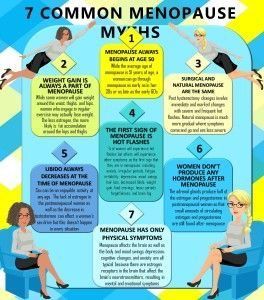
Managing Menopause: Symptoms, Treatments, and Lifestyle Changes
Menopause is a natural stage in a woman’s life that marks the end of her menstrual cycles. It usually occurs between the ages of 45 and 55, and it is characterized by several hormonal and physical changes in the body. While menopause is a normal process, it can bring about various symptoms that may affect a woman’s quality of life. However, with the right treatments and lifestyle changes, managing menopause can be made easier.
Symptoms of Menopause
During menopause, women may experience a range of symptoms, including:
Hot flashes
Night sweats
Mood swings
Irritability
Vaginal dryness
Weight gain
Sleep disturbances
Joint and muscle pain
These symptoms can vary in severity and can greatly impact a woman’s well-being. It is important to recognize and address these symptoms to manage menopause effectively.
Treatments for Menopause
There are several treatment options available for managing the symptoms of menopause:
Hormone Replacement Therapy (HRT): This involves taking estrogen and progestin supplements to replace the hormones that decline during menopause. HRT can effectively relieve symptoms like hot flashes and vaginal dryness. However, it is essential to discuss the risks and benefits of HRT with a healthcare provider before starting.
Non-Hormonal Medications: Certain antidepressants and medications like gabapentin can help alleviate hot flashes and mood swings. These medications target specific symptoms and can be an alternative for women who cannot or choose not to undergo HRT.
Lifestyle Changes: Making healthy lifestyle changes can also significantly help in managing menopause symptoms. Regular exercise, a balanced diet, and maintaining a healthy weight can reduce hot flashes and boost overall well-being.
Alternative Therapies: Many women find relief from menopause symptoms through alternative therapies such as acupuncture, yoga, and meditation. These practices help reduce stress and promote relaxation, aiding in symptom management.
It is crucial to consult with a healthcare professional to determine the most suitable treatment approach based on individual needs and health conditions.
Lifestyle Changes for Menopause Management
Adopting certain lifestyle changes can greatly contribute to managing menopause symptoms. Here are some effective strategies:
1. Exercise Regularly
Engaging in regular physical activity can help reduce hot flashes, improve mood, and promote better sleep. Aim for at least 30 minutes of moderate-intensity exercise, such as brisk walking or swimming, on most days of the week.
2. Eat a Balanced Diet
Focus on consuming a diet rich in fruits, vegetables, whole grains, and lean proteins. Avoid processed foods, excessive sugar, and caffeine as they can worsen menopause symptoms. Adequate calcium and Vitamin D intake are also crucial for maintaining bone health.
3. Practice Stress Management
Stress can exacerbate menopause symptoms. Take time for activities that promote relaxation, such as deep breathing exercises, mindfulness meditation, or engaging in hobbies you enjoy.
4. Maintain a Healthy Weight
Weight gain is a common issue during menopause. Regular exercise and a balanced diet can help prevent excess weight gain and reduce the risk of other health problems like heart disease and osteoporosis.
5. Seek Support
Join a menopause support group or talk to friends or family who have gone through or are going through menopause. Sharing experiences and concerns can provide emotional support and helpful tips for managing symptoms.
Menopause can be a challenging phase for many women, but with proper symptom management, it can also be an opportunity for personal growth and embracing a new chapter in life. By understanding the symptoms, exploring treatment options, and making positive lifestyle changes, women can effectively navigate through menopause and maintain their overall well-being.

